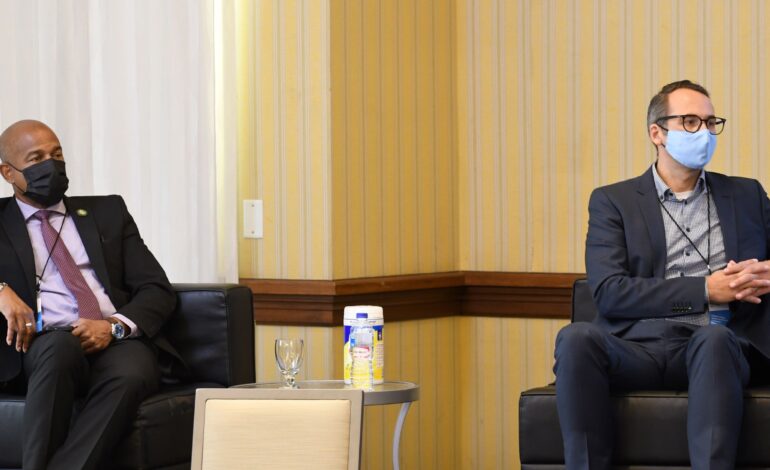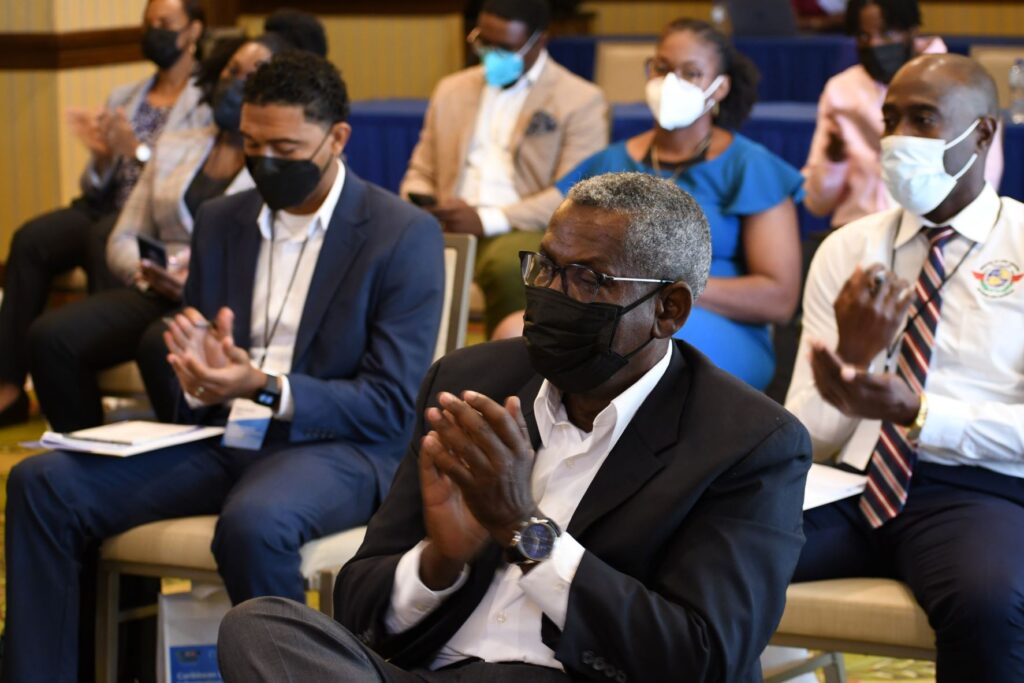
Bridgetown, Barbados – The Caribbean Centre for Renewable Energy and Energy Efficiency (CCREEE), the Caribbean Community (CARICOM) Secretariat and the CARICOM Development Fund (CDF) brought together some thirty representatives of Caribbean governments and regional institutions today to tackle challenges relating to the absence of data, statistics and information within the energy sector.
As Caribbean governments pursue energy security in the face of rising oil and gas prices, a critical issue plaguing effective implementation of the CARICOM Energy Policy is the need to improve the quality and quantity of analytics and information required to enhance energy planning and decision making. Though some Member States are making good progress, it is necessary to ensure that decisions and planning are evidence-based. With this in mind, the three-day Caribbean Energy Statistics and Information Conference was conceived.
The Conference, which targets technical offers within energy, climate change and statistics ministries, also featured the launch of two data enhancement tools intended to assist the region in meeting its energy goals and targets: the CARICOM Energy Knowledge Hub’s (CEKH) new data portal with a renewable energy and energy efficiency donor activity application and the CARICOM Energy Information System (sieCARICOM), developed by the Latin American Energy Organization (OLADE).
During the opening session and concurrent launch of the sieCARICOM, OLADE’s Executive Secretary, Numar Alfonso Blanco-Bonilla remarked that, “we have a very important commitment to the region to improve the quality and quantity of information on the energy sector; that is important information we need for the region to achieve our evironmental and development goals.” Likewise, as a key Conference and programmatic partner, the Technical Assistance Programme for Sustainable Energy in the Caribbean’s (TAPSEC) Simon Zellner shared that information is at the foundation of the Caribbean region’s drive to create a future where all its citizens have access to clean, modern and affordable energy services. He said, “Before there can be strong policies and regulations guiding the regional transformation, there has to be high-quality energy data, statistics and information…it will inform the decisions being made in boardrooms and by governments across Member States. And it will ultimately inform the region’s path towards sustainability.”

Also in attendence, representing CARICOM institutions, was Mr Rodinald Soomer of the CDF and Dr Gary Jackson of the CCREEE. Both organisation Heads highlighted the importance of partnership, which is at the core of regional integration. Dr Jackson noted that partnership and participation is required today and beyond today, in order to leave no one behind, aligning with Mr Soomer’s positing that the region’s goals cannot be achieved by any one corporation; citing CDF’s ongoing partnership with the CCREEE. During the keynote address, Dr Justin Ram also made mention of the need for regional integration. He advocated for connecting the region as a single economic space.
The Conference received financial support from the Kingdom of Spain and the Deutsche Gesellschaft für Internationale Zusammenarbeit (GIZ) implemented Technical Assistance Programme for Sustainable Energy in the Caribbean, which is funded by the European Union and the German Federal Ministry for Economic Cooperation and Development.






